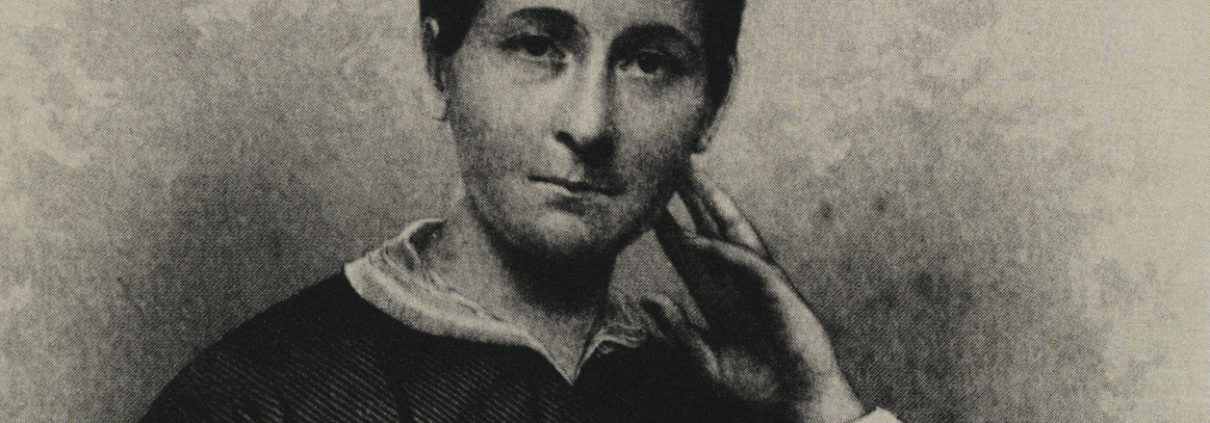PHOEBE PALMER
“The church in many places is a sort of potter’s field, where the gifts of woman, as so many strangers, are buried. How long, O Lord, how long before man shall roll away the stone that we may see a resurrection?”
A mother of six children, three of whom died before their first birthday, Phoebe Palmer has also become known as the “mother of the holiness movement”. Palmer was born in New York City on December 18, 1807. Her Methodist parents raised their children in the church, and Phoebe attended services both at church and at camp meetings. In 1827, she married Walter Clarke Palmer, a physician.
Shocking the public, but incredibly effective at evangelism, Phoebe Palmer was a leading itinerant preacher and Christian author in the nineteenth century, at a time when women were not considered “suitable” for public ministry. A supporter of the temperance movement, women and inner city missions, she founded one of the first prison ministries in the US and cofounded the Five Points Mission – the first Protestant settlement house in the country.
Phoebe Palmer’s first two children died as babies. Alexander, the firstborn, died at nine months; two years later, her second child, Samuel, died at seven weeks old. Just five years later, the couple lost a third child. Eliza, was killed in a tragic crib fire and died in Phoebe’s arms at eleven months old. The devastation of her grief eventually led Palmer to offer herself fully to God, without insisting on emotionally affective experience of faith (1837). In time, emotions came too.
Phoebe and her sister Sarah hosted prayer meetings called the “Tuesday Meeting for the Promotion of Holiness” in the Palmer home. When the meetings first started, only women attended. By 1839, men were invited to participate in the prayer meetings. Palmer considered herself a “Bible Christian”, for whom Scripture was the primary authority – and one available to all Christians able to read and not too lazy to do it.
By 1840, Phoebe and her husband Walter traveled throughout the northeastern United States as itinerant evangelists, visiting churches, camp meetings, and conferences. She was the primary speaker of the couple. Catherine Booth’s groundbreaking pamphlet “Female Ministry” (1859) was a response to a negative reception of Phoebe Palmer. Booth had attended a revival meeting in Newcastle-upon-Tyne led by Phoebe and Walter Palmer. A local clergyman was so angry that Phoebe Palmer was preaching—something he believed only men should do—he published a pamphlet outlining his belief that women in the pulpit was unscriptural. Catherine Booth was outraged and drafted a letter in response. William Booth encouraged his wife to expand her letter into a pamphlet.
Palmer published several books, including The Way of Holiness (1843). Her book The Promised of the Father was a major work exhorting women to share the gospel and prophesize and warning men who sought to limit women that their views would be hard to justify to the “Head of the church” Jesus Christ. She instructed that, in time, ignorance could not be claimed, but guilt would have to be acknowledged. The full book can be found on Amazon or for free here: http://wesley.nnu.edu/wesleyctr/books/2401-2500/HDM2485.pdf For a modern reader, her approach to “women’s issues” may seem overly invested in the mores of the day. Others may think she was subversive in a diplomatic fashion. In any case, she was quite influential and much of what she stated still bears hearing. A few highlights from The Promised of the Father (1859):
- “Examples of modern and ancient days might be furnished of women who have been called to fill positions of large responsibilities, both civil and ecclesiastical. It was thus that Deborah, a prophetess, the wife of Lapidoth, was called to judge Israel – not because there were no men in Israel who might fill the position, but because God in his wisdom had so ordained…”
- “Suppose Peter, James or John had questioned their [Mary or any of the many women at Pentecost] right to speak as the Spirit gave utterance before the assembly, asserting that it were unseemly, and out of the sphere of woman, to proclaim a risen Jesus, in view of the fact that there were men commingling in that multitude. How do you think that He who gave woman her commission on the morning of the resurrection, saying “Go, tell my brethren,’ would have been pleased with an interference of this sort?”
- On a woman who wished to share what Jesus had revealed to her… “Had she been in a worldly assembly, and wished to attract others with an object of admiration, she would not have hesitated to have brought out the theme in conversation and attracted listeners would have taken her more closely to their hearts and been won with the object of her love. But she is now in the assembly of the pious…cruel custom sealed her lips…At last she ventures to obey God rather than man. And what is the result? A committee is appointed to wait on her and assure her that she must do so no more. Whisperings are heard in every direction that she has lost her senses and instead of sympathizing looks of love, she meets averted glances and heart repulses.”
- “What serious errors in faith and practice have resulted from taking isolated passages dissevered from their proper connections to sustain a favorite theory!…The scriptural way of arriving at right Bible conclusions is by comparing scripture with scripture. And had this scriptural mode of interpretation been observed in regard to this subject [women teaching, preaching and prophesying]…[it] might have resulted in the salvation of thousands.”
- “But we cannot disabuse our minds of the belief that just what is wanting, in order to rectify this error in the church fully, is, that all ministers of Christ should seek a like baptism of the Spirit as did those early apostles. When this becomes the general experience of the ministry, then will they seek to bring out the gift of prophecy in women.”
- She shared a husband’s revelation, “It was suggested to my mind that I had not religion enough to allow my wife to do what she deemed to be a duty to her Savior; that my prejudices must be her standard of activity. I at once saw the injustice, both to my wife and to my Savior, of thus thrusting my feelings and preferences between her and the cross.”
- “I have often thought since then how cruel to women it is to compel her to stifle her convictions, to grieve the Holy Spirit, to deny the Savior the service of her noble gifts, because the pleasure of the church (not surely the world, for it favors women’s liberty) must be regarded above that of God.”
- “The church in many places is a sort of potter’s field, where the gifts of woman, as so many strangers, are buried. How long, O Lord, how long before man shall roll away the stone that we may see a resurrection?”
To learn more about Phoebe Palmer, check out a book of the same name by Thomas C. Oden (1988) from Paulist Press, currently available for purchase online through Barnes & Noble.

